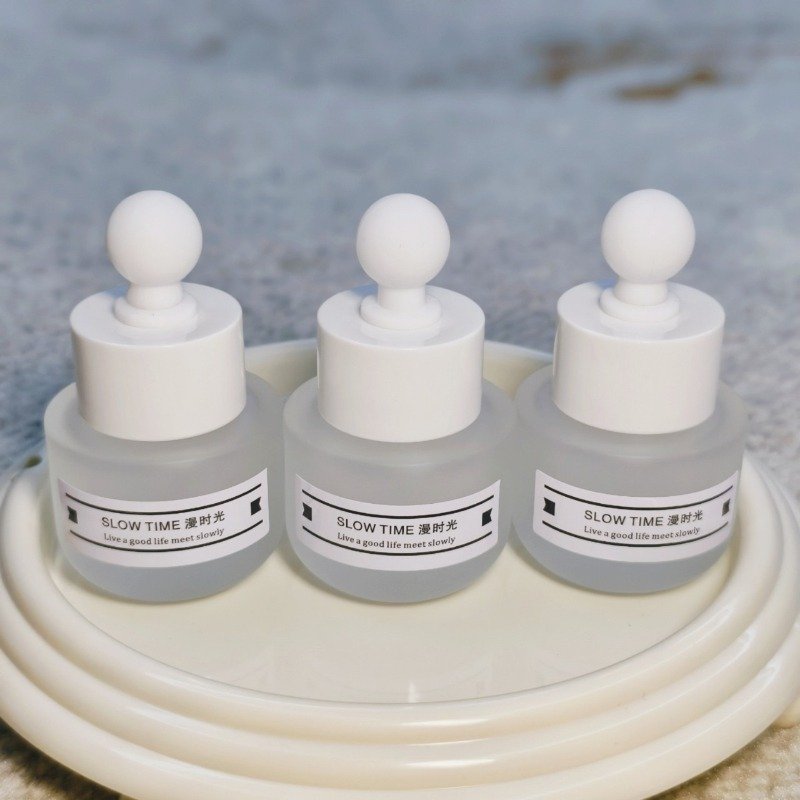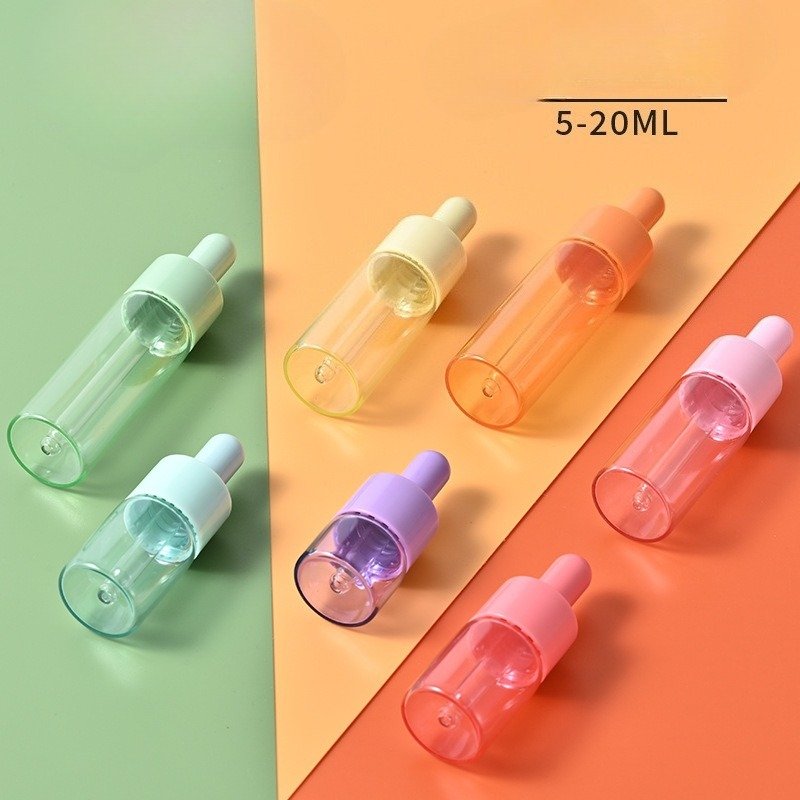Meta Description: Wanting to know if essential oils must be stored in glass? This aitical compares glass vs. plastic bottles, explains why material matters, and shares pro tips from an 8-year packaging expert.
Introduction
As a cosmetic packaging specialist with more than 8 years of experience, I have helped over 50 essential oil brands choose the right bottles. One question I always get:
“Do essential oils really need glass bottles, or can I use plastic?”
The answer? Yes, glass is best—however, not all plastics are bad. Let me explain from science, industry standards, and real-world examples.

1. Why Glass Is the Gold Standard
Science Behind It
Essential oils are highly concentrated and contain terpenes (organic compounds that react with certain materials). Glass is non-reactive, meaning:
✔ No chemical leaching
✔ No scent alteration
✔ No degradation over time
Industry Practice
Top brands (doTERRA, Young Living) use amber or cobalt glass because:
- Blocks 97% of UV light (prevents oxidation)
- Preserves potency for 2+ years
- Looks premium (justifies higher pricing)
2. Glass vs. Plastic: Side-by-Side Comparison
Table: Glass vs. Plastic Bottles for Essential Oils
| Factor | Glass Bottles | Plastic Bottles |
|---|---|---|
| Chemical Safety | Non-reactive (safe for all oils) | May degrade with citrus/pine oils |
| UV Protection | Amber/cobalt blocks light | Clear plastic offers no protection |
| Shelf Life | 2-3 years | 6-12 months (if PET/HDPE) |
| Cost | $$$ (5x pricier than plastic) | $ (Budget-friendly) |
| Eco-Friendliness | Recyclable but heavy | LDPE/PET can be recycled |
Note: PET and HDPE plastics are sometimes used for short-term storage but aren’t ideal for long-term use.
3. When Can You Use Plastic?
Acceptable Scenarios
- Travel-sized oils (under 10ml, used within 2 months)
- Diluted blends (carrier oils reduce corrosion risk)
- Budget lines (if labeled “For immediate use”)
Plastics to Avoid
❌ PVC – Releases toxins
❌ Polycarbonate – Contains BPA

4. Pro Tips From My 8 Years Experience in Packaging Industry
For Brands:
- Use amber glass for top-selling oils (lavender, peppermint).
- Offer plastic minis as travel-friendly options.
- Label clearly (e.g., “Store in cool, dark place”).
For Consumers:
- Transfer oils to glass if bought in plastic.
- Avoid clear bottles (even glass)—UV damages oils.
5. FAQs (From Real Clients)
Q: Can I use aluminum bottles?
A: No! Oils corrode metal over time.
Q: What about silicone?
A: Safe for short-term storage (e.g., roll-ons).
Q: Is frosted glass okay?
A: Yes, if it’s opaque (not just surface-treated).
Conclusion
While plastic works temporarily, glass is the only choice for long-term essential oil storage. As a brand, investing in quality glass:
✓ Builds trust
✓ Extends product life
✓ Justifies premium pricing
Need bottles? I supply amber glass dropper bottles (MOQ 1,000). [Contact me] for samples!

